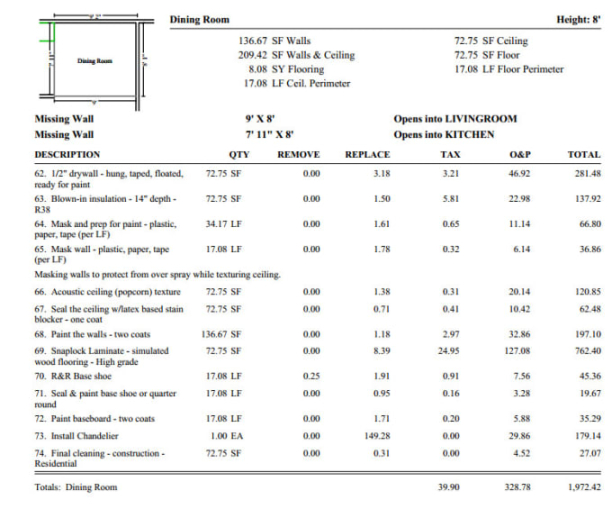Analyzing Gutter Bids: What You Need to Understand
In terms of upholding the structure of your home, roof gutters play a crucial role in directing water away from your structure and preventing expensive damage. Nonetheless, whether you're setting up new gutters or updating old ones, getting an precise gutter estimate can make a substantial difference in your project's result. Homeowners often encounter themselves moving through a jungle of estimates from different contractors, each influenced by distinct factors and materials. Understanding how to approach this process is crucial to making a well-informed decision.
In this article, we will discuss key tips and points for securing precise gutter estimates, making certain you are aware of exactly what to look forward to before leaping into any installation work. From understanding how to evaluate estimates from different contractors to understanding the impact of materials and local variations, we’ve got you covered. Whether you’re a experienced homeowner or taking on this project for the first occasion, knowing your choices will help you save money and avoid typical pitfalls along the way.
Understanding Gutter Estimates
Rainwater estimates are crucial documents that offer homeowners with a detailed view of the expenses associated with putting in or replacing gutters. This quotation typically consists of resources, work, and possible extra services required. It assists homeowners evaluate the overall investment needed for their rainwater installation, acting as a foundation for setting up financial plans and making informed choices.
When examining a rainwater quotation, it's important to understand what factors are affecting the cost. These can include the type of materials selected, the size and slope of the rooftop, and any special features like drainpipes or gutter guards. By recognizing these elements, homeowners can have attainable expectations about their estimates and find areas where prices may change significantly between different providers.

Furthermore, contrasting different estimates can uncover a range of options and pricing structures available in the market. Each provider may have a different approach, leading to variations in their estimates. Homeowners should seek out detailed line items in each estimate, showing what's included and any concealed fees, ensuring a more open evaluation methodology.
Elements Affecting Prices
Several key considerations can significantly influence the price of your downspout assessment. Primarily and above all, the size and layout of your cover play a crucial role. Bigger roofs typically need broader downspout systems to accommodate greater water flow, resulting in higher supplies and labor costs. The complexity of the roof’s design, which includes elements like several pitches and distinct angles, can also increase the effort involved, which will additionally affect the overall quotation.
The decision of substances is another important consideration when evaluating gutter estimates. Typical materials consist of aluminum, vinyl, and copper, each with its own expense implications. While aluminum is typically inexpensive and popular, copper gutters deliver durability and aesthetic appeal but come at a significantly increased price. Furthermore, the density of the substance may affect durability and upkeep, so it’s crucial to weigh the benefits against costs when forming your decision.
In conclusion, area-specific cost differences can affect gutter quotes substantially. My Gutter Estimate in regional service rates, resource availability, and need for gutter fitting services can all cause variation in prices. Homeowners in city areas may face higher quotes due to elevated labor costs, while those in countryside regions might find better pricing. Understanding the landscape in your region can help you better foresee and compare gutter estimates from multiple contractors.
Tips for Comparing Estimates
When evaluating gutter estimates, it’s essential to look beyond just the price. Start by analyzing the details provided in every estimate. A detailed estimate should outline the types of materials, labor costs, and any additional fees. This transparency helps you evaluate what you will get for your investment and ensures that you're comparing apples to apples. It is advisable to request contractors for a detailed list of their estimates, so that you can see how much you are spending for materials versus labor.
Next, take into account the contractor's standing and experience. https://mlx.su/paste/view/a6f0f208 to research each company, look at customer reviews, and check their credentials. A cheaper estimate may not necessarily be the best choice if it comes from a contractor with a track record of poor workmanship or service. Seek out contractors who have good reviews from previous clients, as this often indicates dependability and high standards.
In conclusion, don't hesitate to inquire and seek clarification on any portion of the estimates that are unclear. Interacting with contractors demonstrates you are an informed homeowner and helps establish credibility. Additionally, if you feel comfortable, you can talk about the estimates with contractors to see if there is room for negotiation. Sometimes, they may be open to change their prices or offer better terms, especially if you're considering multiple bids.